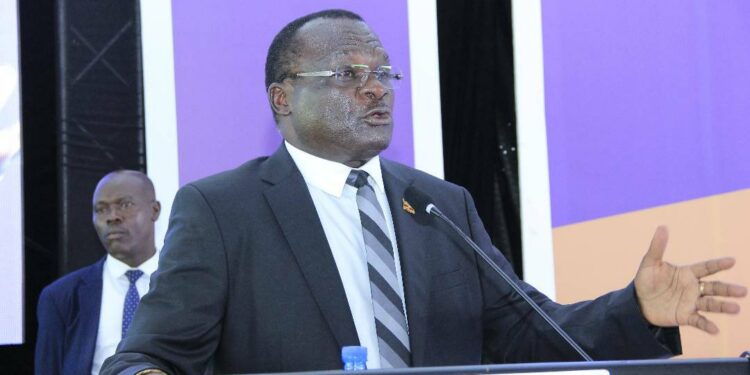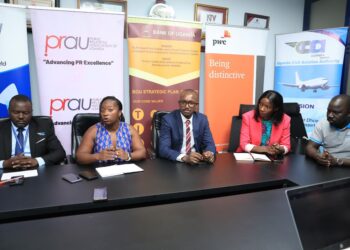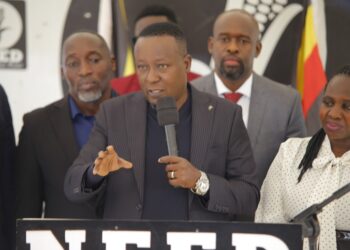Chief Justice Alfonse Chigamoy Owiny-Dollo has revealed that the adoption of Alternative Disputes Resolution (ADR) will Africanize Uganda’s Judicial system and move within the traditional justice needs thus settling many cases at no cost.
In his address at the ongoing 1st High-Level National Alternative Dispute Resolution (ADR) Summit 2023 at Mestil Hotel, Justice Dollo said that the current system of Justice is not African and it is one of the reasons why the Judiciary is suffering from a number of case backlogs.
“We have practiced this British system of Justice for the past 100 years, and one of its most notable characteristics is the undesirable case backlog situation which shows no sign of going away. Africanization of administration of justice, through ADR, will provide a quick and timely resolution of disputes, eliminate the use of middlemen, and reduces transactional costs,” he said.
Justice Dollo added that as a way of ensuring justice for all Ugandans, courts must move from the mindset of guarding their jurisdiction jealously to opening it up to alternative dispute resolution mechanisms.
“The average caseload per judge of the High Court now is 945 cases which can be significantly reduced if ADR is employed intensively. The need for a paradigm shift in the mechanisms for administration of justice is better brought out when we take cognizance of the fact that as we speak now, trillions of Uganda shillings the release of which would have a notable impact on our economy is locked up in the Commercial Division of the High Court alone, with a huge chunk of this arising from disputes that involve Banking and other financial institutions, because of the ineffective traditional mode of litigation we have in place as the core of our dispute resolution mechanism,” he said.
Justice Dollo also revealed that with the current state affairs in courts delaying to deliver rulings, there is simply no way that Uganda can be an investment destination when investments are either inordinately delayed or locked up altogether in unending disputes.
“This speaks to the need for the government to play a central role in seeing that the ADR mechanism is well rooted in the country as part of our Justice Mechanism System. It is important to note, and this is quite instructive, as I’m made to understand, that in the United States of America, the biggest economy in the world, 95 per cent of civil disputes are resolved through the ADR mechanism; while as high as 98 per cent of all criminal justice processes are determined through this mechanism. The obvious reason for the migration from the traditional (Court based) mode of litigation to the ADR in the United States of America can only have been due to the stark contrast between the two mechanisms, in favour of the ADR as a mechanism that delivers.”
Chief Justice Dollo added that the current judiciary transformation agenda is geared towards enhancing access to justice services across Uganda and to realize this aspiration the Judiciary Strategic Plan V; which is to run from 2021/22 to 2024/25 has been put in place whose objective 2 identifies the need to strengthen ADR mechanisms as one of the critical measures that should be implemented.
“In a bid to realize this objective, the Judiciary has embarked on legal and judicial reforms aimed at strengthening and promoting a broader ADR framework. The proposal to develop a broader ADR framework for the Judiciary (Alternative Justice System) is anchored in the 1995 Constitution of Uganda, recognizing respect for culture, norms and values in line with fundamental rights and freedoms as enshrined in the Constitution.”
According to Justice Dollo, these cultures, norms and traditions of societies are central in facilitating the expeditious and cost-effective resolution of disputes if guided by a policy framework compared to the current adjudication framework, which is unnecessarily technical and complicated, characterized by high costs, and is adversarial; thus leading to congestion with the resultant massive backlog situation that is witnessing now.
“The foregoing diagnosis of the justice system makes a strong case for an alternative justice system as an anchor for informal justice dispute resolution processes.”
Do you have a story in your community or an opinion to share with us: Email us at editorial@watchdoguganda.com













